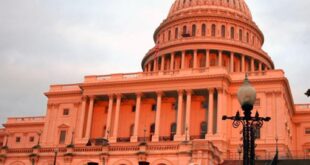BEIRUT – An Arab mediator brokered a meeting between rival Lebanese leaders on Thursday but a political source said their dispute was unresolved and a breakthrough remained distant.
Arab League Secretary General Amr Moussa brought together governing coalition leader Saad al-Hariri and Christian opposition leader Michel Aoun for their first meeting since Aoun was named opposition negotiator in December.
The leaders discussed an Arab states’ initiative to end the political conflict that has paralyzed government for more than a year and left Lebanon without a president since November. Amin Gemayel, governing coalition Christian leader, was also present.
“There is agreement on a number of matters — agreement which makes me optimistic that there is wide room for (fuller) agreement,” Moussa said after the meeting in the parliament building, but declined to give details.
“But there are some matters which require dialogue between the parties,” he told reporters, adding that he would meet the leaders again after a trip to Damascus on Friday.
Speaking before the meeting, the political source told Reuters the gathering was more about form than substance. “The breakthrough in substance is still distant,” the source said.
The Arab plan calls for the election of army chief General Michel Suleiman as president, the formation of a national unity government and the drafting of a new law for a parliamentary election due next year.
Suleiman has been accepted by both sides as the candidate to fill the presidency, but his confirmation by a vote in parliament has been held up by a dispute over the shape of the new government to be formed after he takes office.
Parliament has been called for a 13th time on Monday to elect Suleiman but the vote cannot succeed without a deal between the sides that would secure a two-thirds quorum in the chamber.
Opposition leaders want an equal three-way division of cabinet seats — between themselves, the majority and the president — or veto power. Neither option is acceptable to the majority.
Efforts to resolve the conflict have been complicated by tensions between the rival foreign sponsors of the Lebanese factions. The opposition is backed by Syria and Iran while the governing coalition’s supporters include the United States and Saudi Arabia.
 Eurasia Press & News
Eurasia Press & News



